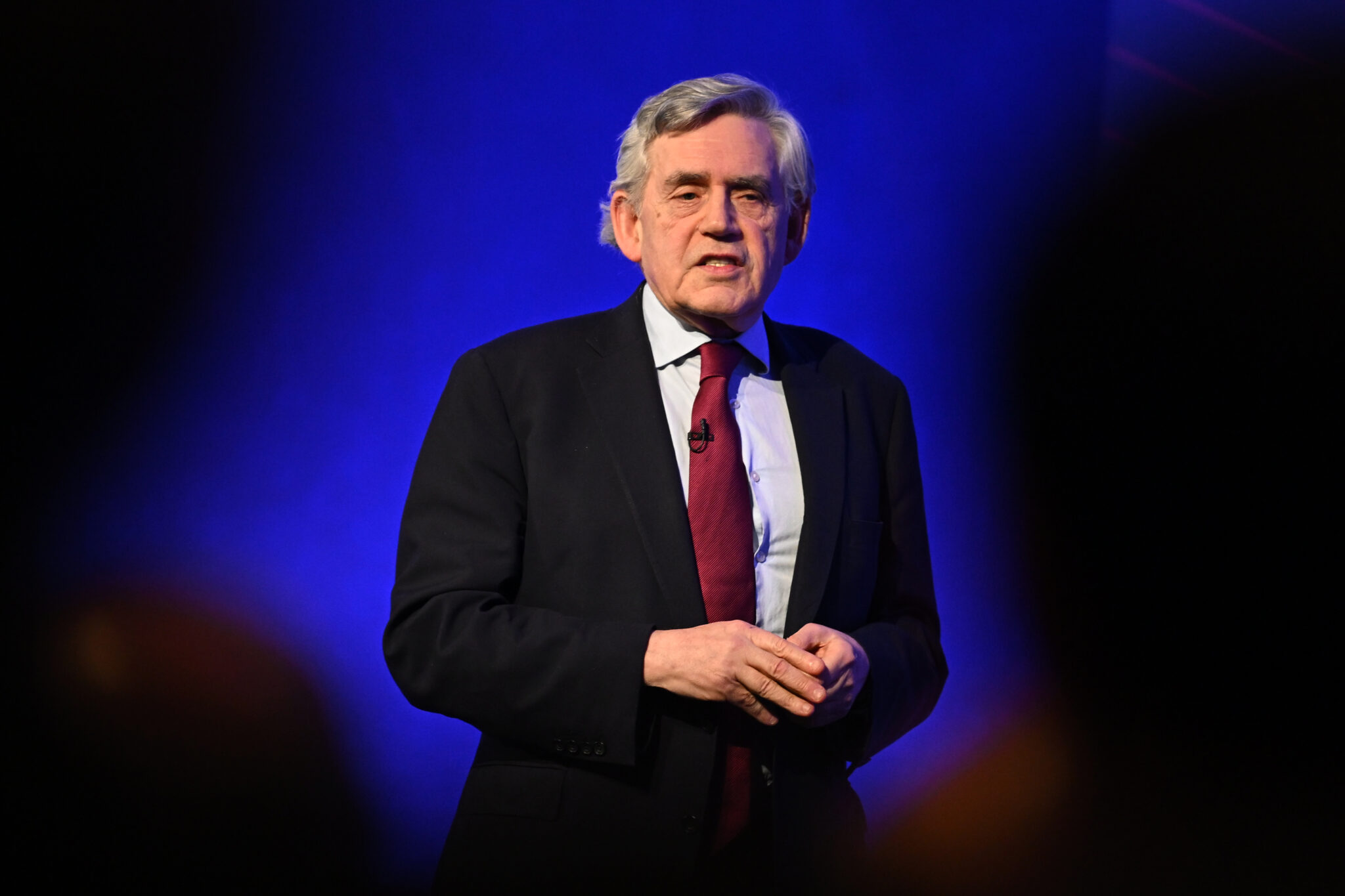Gordon Brown, the former Labour Prime Minister, has come out strongly against assisted suicide just a week before a crucial vote in the House of Commons.
Mr Brown, who succeeded Tony Blair in 2007 and served until 2010, said that he instead favoured investment in good quality health care for people at the end of their lives.
His opinion, he said in an article for <em>The Guardian</em>, was informed by the loss of his daughter Jennifer, who died from a brain haemorrhage just 11 days after her premature birth in 2002.
Mr Brown described the final days he and wife Sarah shared with their baby as the “most precious” of their lives, convincing them of “the value and imperative of good end-of-life care”.
The Labour grandee said assisted suicide was “not the only option available, nor even a good option when set against the palliative support that could be available in ensuring a good death”.
He wrote: “Jennifer, the baby daughter my wife Sarah brought into the world a few days after Christmas 2001, died after only 11 days.
“By day four, when the extent of her brain haemorrhage had been diagnosed, we were fully aware that all hope was gone and that she had no chance of survival. We could only sit with her, hold her tiny hand and be there for her as life ebbed away. She died in our arms.
“But those days we spent with her remain among the most precious days of my and Sarah’s lives.
The experience of sitting with a fatally ill baby girl did not convince me of the case for assisted dying; it convinced me of the value and imperative of good end-of-life care.”
He warned readers of the danger of a “slippery slope” and the existing reality of a “postcode lottery” of high-quality palliative care.
Mr Brown said: “When only a small fraction of the population are expected to choose assisted dying, would it not be better to focus all our energies on improving all-round hospice care to reach everyone in need of end-of-life support?
“Medical advances that can transform end-of-life care and the horror of people dying alone, as with Covid, have taught us a great deal.
“This generation has it in our power to ensure no one should have to face death alone, uncared for, or subject to avoidable pain.”
He added: “With the NHS still at its lowest ebb, this is not the right time to make such a profound decision.
“Instead, we need to show we can do better at assisted living before deciding whether to legislate on ways to die.”
His intervention comes just a week before the House of Commons votes for the Terminally Ill Adults (End of Life) Bill, which was introduced by backbench Labour MP Kim Leadbeater to legalise assisted suicide, which at present is prohibited by the 1961 Suicide Act and can carry a penalty of up to 14 years in prison.
The free vote on Friday November 29 will be the first on assisted suicide since 2015 when a Bill introduced by Labour MP Rob Marris was rejected by 330 votes to 118.
The Bill seeks to permit terminally ill patients deemed to have less six months to live to kill themselves with lethal drugs prescribed by their doctors.
Ms Leadbeater has moved to assure waverers that her Bill provide the “strictest protections of anywhere in the world” but already a group of more than 50 MPs say the safeguards are too tight and are pushing for broader access to assisted suicide.
The Bill has split the Cabinet, with at least eight of 26 senior ministers expected to vote against it.
They include Health Secretary Wes Streeting, Justice Secretary Shabana Mahmood, Foreign Secretary David Lammy, Business Secretary Jonathan Reynolds, Deputy Prime Minister Angela Rayner, Chief Secretary to the Treasury Darren Jones, and Education Secretary Bridget Phillipson, a Catholic.
The 11 Cabinet ministers planning to vote for the Bill are Lisa Nandy, Yvette Cooper, Ed Miliband, Hilary Benn, Liz Kendall, Louise Haigh, Lucy Powell, Pat McFadden, Jo Stevens, Peter Kyle and Sir Alan Campbell.
The bishops of England and Wales have called on Catholics to actively oppose the assisted suicide Bill by urging their MPs to vote against it.
Last week, they issued a joint statement with the Scottish bishops called Be Compassionate in which they warned of the clear dangers in the legislation.
Cardinal Nichols, Archbishop Mark O’Toole of Cardiff and Menevia and Bishops Mark Davies of Shrewsbury, Patrick McKinney of Nottingham, Marcus Stock of Leeds, Paul Swarbrick of Lancaster, Peter Collins of East Anglia and Richard Moth of Arundel and Brighton have all written pastoral letters encouraging Catholics of their dioceses to take action.
In his letter, Bishop Philip Egan of Portsmouth said that the ideology behind assisted suicide was comparable to Nazism.
The failure of Catholics to act, he said, would be to “capitulate to the very ideology Britain fought against in the Second World War”.
“If we yield to this and permit killing, we will cross a line from which there is no return,” he said. “Like using nuclear weapons, once deployed, it’s too late – there’s only escalation … It would inexorably lead to euthanasia, the right to make another person die.”
Bishop Egan, Cardinal Nichols and Archbishop John Wilson of Southwark have each made videos appealing to voters to act.
In his video, Archbishop Wilson said the threat is “not just physical but moral and spiritual too”.
He said: “People are being presented as a problem. As a burden. A statistic. Something we can deal with through ending their life.”
Archbishop Wilson asks: “Where is the dignity in that? Where is the love in that? Each person is made in the image and likeness of God … Who are we to say a life is not worth living or that someone is better off dead because society values their contribution less than someone else?”
He added: “We need to raise our voices to say that is not true … if we don’t stand up and value the dignity of human life, who will?”
<em>(Photo by Leon Neal/Getty Images)</em>



